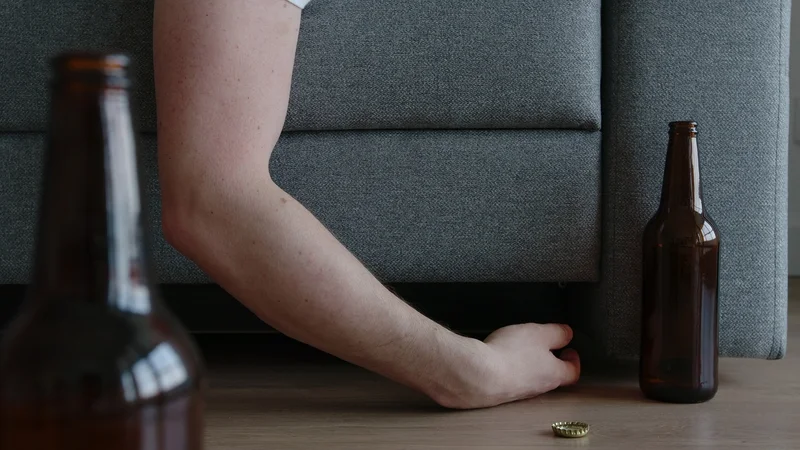
These positive interactions not gratitude in recovery only boost morale but also promote an atmosphere of trust and support. The word gratitude is derived from the Latin word gratus which means ‘pleasing; welcome; agreeable’. In recovery, gratitude is a foundational principle that helps to diminish the self-centered nature of addiction and cultivate a positive mindset. Expressing thankfulness can strengthen relationships with family members, friends, and others in recovery.

Reset Your Mind: Benefits of Inpatient Mental Health Care

Regular gratitude practices boost immune function, making the body more resilient to illness. It also reduces inflammation, which is often linked to chronic pain and disease. These effects help recovery individuals maintain better physical health, supporting healing and overall vitality. Gratitude helps shift focus from what’s missing or painful to what is positive and meaningful in life. It cultivates emotional resilience, improves mental well-being, and fosters a healthier outlook—making it easier to stay committed to sobriety.
- Practicing gratitude helps reduce stress by shifting focus from what might be missing or overwhelming to appreciating the positive aspects of life.
- Recognizing the importance of gratitude and incorporating it into daily life can have transformative effects on mental, emotional, and social well-being.
- These practices foster awareness of the good things in life, even amidst challenges.
- Gratitude also cultivates resilience, enabling individuals to navigate recovery’s challenges with a hopeful outlook, which is essential for maintaining sobriety.
- Whether it’s recovery from addiction, mental health struggles, or another life challenge, it demands resilience, commitment, and self-compassion.
- We offer comprehensive telehealth addiction treatment designed for the whole family unit.
Essentials for Practicing Gratitude in Recovery
Additionally, regular gratitude practices can bolster physical health, contributing to better immune function and heart health—key components that support overall well-being during recovery. Keeping a gratitude journal is a common practice that helps individuals refocus their thoughts. This shift from negativity to positivity is https://ecosoberhouse.com/article/alcohol-and-depression-how-alcohol-makes-your-depression-worse/ vital, especially in early recovery, where overwhelming emotions often occur.
- Let’s explore how we can practice gratitude in different aspects of our life in recovery.
- This is essential as individuals often need to mend strained connections after a period of substance use.
- After some thought, I have made a decision to serve the songbirds I remember being so plentiful when I was young but have become so much rarer now.
- Practicing gratitude in recovery can help someone realize life’s difficulties can be faced with dignity.
- One of the simplest yet most effective ways to practice gratitude is by keeping a daily gratitude journal.
Gratitude and Physical Health
This attitude will put you in the right mindset to enjoy your life drug and alcohol free, which will help you in your recovery. Suffering from a substance use disorder can cause you to do things you aren’t proud of. However, a substance use disorder is often the result of choices you made, but choices you made without the intention to become addicted. You may have made mistakes, but you are in recovery and focusing on getting better.

Dual-Diagnosis Treatment: Addressing Mental Health and Addiction

Maintaining an attitude of gratitude is vital in recovery because it cultivates a positive mindset and fosters emotional resilience. When individuals focus on what they value and appreciate, they are better equipped to manage stress, anxiety, and negative thoughts that can threaten sobriety. While the benefits of gratitude in recovery are clear, it’s important to acknowledge that cultivating this practice isn’t always easy, especially in the early stages of sobriety. Addiction can leave individuals feeling raw, overwhelmed, and deeply entrenched in negative thinking patterns.
Be Generous in Appreciation

It’s a simple yet effective way to shift focus from negativity to appreciation. Gratitude helps individuals acknowledge the goodness what is alcoholism in their lives, fostering connections to something larger than themselves. By fostering a consistent gratitude practice, those in recovery can pave the way for a more positive and fulfilling journey. The grateful participants had more activity in a part of the brain known as the prefrontal cortex, where decision-making and learning happens.
- However, if you are able to take that negative event and laugh it off or just forget about it, the day often turns around and is a good one.
- This could involve writing down three things they are thankful for in a journal.
- Gratitude enhances connectivity, urging individuals to express appreciation to their support networks.
- It encourages individuals to view challenges not as failures but as opportunities for growth.

 No products in the cart.
No products in the cart.